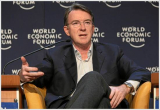
In a significant turn of events, New Zealand's opposition National Party emerged victorious in the recent election, securing enough seats to potentially form a coalition with right-wing allies.
Incumbent Prime Minister Chris Hipkins, representing the Labour Party, conceded defeat by calling National's leader, Chris Luxon.
Mr. Luxon expressed his gratitude to National voters, commending them for "reaching for hope" and "voting for change." His ascendancy to power has been rapid, as he became an MP in 2020 and assumed the role of National leader just a year later.
According to projections by The New Zealand Herald, the National Party was poised to win 50 seats with approximately 39% of the vote. Combined with Act's projected 11 seats, a natural right-wing ally, they would secure a narrow majority in what is anticipated to be a 121-seat parliament. The Labour Party was projected to win 33 seats, the Greens 13, Act 12, NZ First 8, and Te Pāti Māori four. This projection is based on around 96% of votes counted.
Mr. Luxon, a former airline executive, enthusiastically declared, "I am immensely proud to say that on the numbers tonight, National will be able to lead the next government." He assured the people that his government would work to deliver for every New Zealander, aiming to bolster the economy and provide tax relief, reduce the cost of living, maintain law and order, enhance healthcare, and ensure quality education for children to realize their dreams.
However, the National-Act coalition's majority is slim, which means Mr. Luxon may need to secure the support of NZ First, a party whose leader, Winston Peters, has played a pivotal role in previous Labour and National-led coalitions.
Mr. Hipkins, who took office in January, thanked supporters for their campaign efforts, acknowledging that the election outcome was not what they had hoped for.
This election revolved around key campaign promises from Mr. Luxon, including tax cuts for middle-income earners, addressing youth offending, banning phones in schools, and scrapping the Labour government's plan to increase fuel taxes.
One of the pivotal issues leading up to the election was the cost of living, a concern amplified by New Zealand's economic dependence on China, its largest trade partner, and the ongoing conflict in Ukraine.
The result is a considerable setback for the Labour Party, which had secured an outright majority in government in 2020 under Jacinda Ardern, an unprecedented feat in New Zealand's proportional representation system.
Nonetheless, Labour's popularity waned, with many New Zealanders expressing dissatisfaction due to rising prices and the country's prolonged Covid lockdown. The party faced significant losses, including some high-profile members at risk of losing their seats, such as Nanaia Mahuta, the foreign minister.
Mr. Hipkins candidly admitted, "Taking over from my good friend Jacinda was never going to be an easy task," acknowledging the uphill battle he faced.
Luxon assured his supporters in Auckland that New Zealand had chosen change, expressing his eagerness to lead the country in a new direction. A final election result is expected to be officially announced on November 3, 2023. Photo by Jakobandrewnz, Wikimedia commons.








































